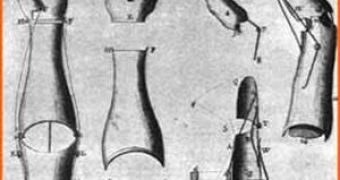Researchers at the University College of London are on the point of making an outstanding surgery discovery: a new technology that allows skin to bind perfectly with metal prostheses without any risk of infection. The artificial limbs made of titanium will be attached directly to bones and controlled by the nervous system.
People who have lost thumbs, fingers or limbs in different kinds of accidents will greatly benefit from the new technology. This new technology known as Intraosseous Transcutaneous Amputation Prosthesis (ITAP) involves a titanium implant attached to the bone and then sealed off and covered completely by skin without running the risk of infection. This can fortunately lead to fully functioning bionic limbs.
Early clinical trials showed that the method has all the chances to be a revolutionary one, as there has been a significant impact on some of the volunteers to the study. One of them was able to use his fingers and write after a 10 years' pause, while another one had an artificial eye attached after he had lost it to cancer.
Dr. Paul Unwin revealed for BBC that the whole idea of the study was based on the bone in a deer's antlers and explained why the new technology is really going to work safely: "The mobility of tissue is a big factor; you don't want the tissue to rip away from the piece of metal, so you need a structure under the skin that will allow the dermal tissues to attach into the metal. What we had seen in the deer antlers was that it is very much to do with the structure and shape of the bone, and the porosity of the bone. The tissue attaches in with long fibers, and it is like anchors attaching directly into it."

 14 DAY TRIAL //
14 DAY TRIAL //